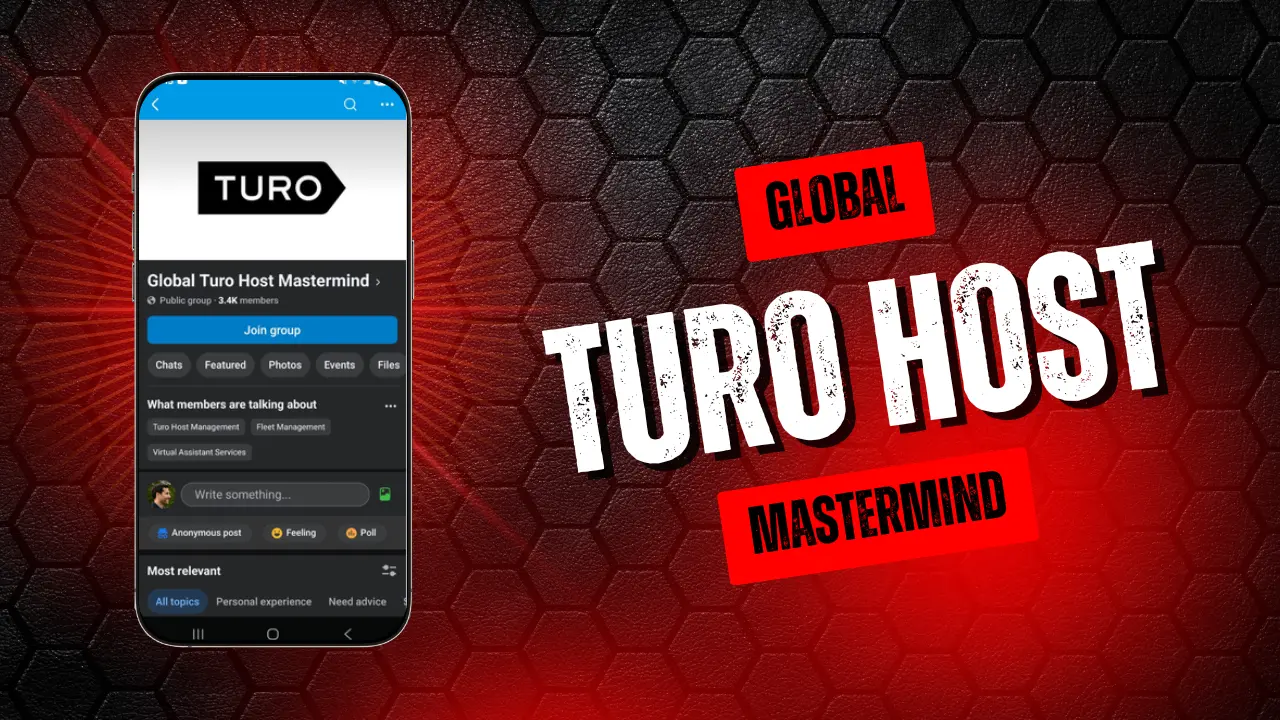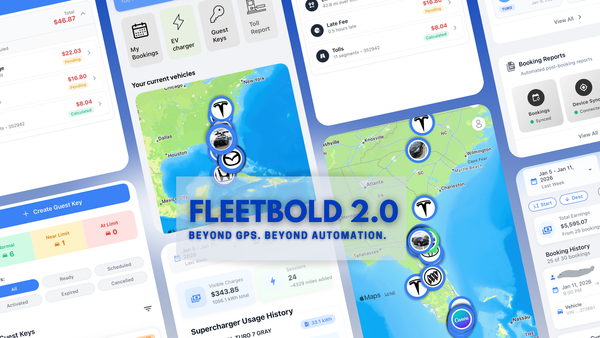Amazon vs Carvana: Who Will Win the Online Car Sales Battle?
Amazon Autos is challenging Carvana and CarMax in online car sales. Who has the edge in trust, inventory, and convenience? Find out here.

Introduction
The auto industry is in the middle of one of its most profound transformations. For decades, buying a car meant hours at dealerships, endless negotiations, and hidden fees. Then came Carvana, the online-first retailer that promised to disrupt everything with a fully digital experience. For a while, it seemed like the future had arrived.
But now, a new challenger has entered the arena: Amazon Autos. Backed by the global e-commerce giant, Amazon’s move into car sales has raised one big question can it outcompete Carvana, CarMax, and the traditional dealership model?
Carvana’s Rise: The Pioneer of Online Car Buying
Founded in 2012, Carvana became synonymous with innovation in car buying. Its business model was simple: no dealership haggling, no wasted time, just an easy-to-use platform where customers could buy a car entirely online. Vehicles were delivered directly to the buyer’s home, or picked up from one of Carvana’s iconic glass car vending machines.
Carvana also won trust with seven-day return policies, detailed inspections, and no-haggle pricing. By 2020, it had billions in annual revenue and a reputation as the future of automotive retail.
Yet success came at a cost. Carvana’s rapid growth left it with enormous debt, logistical bottlenecks, and waves of customer complaints about late deliveries and title issues. Its stock soared, then plummeted, exposing how fragile the business model could be when scaled too aggressively.
CarMax: The Established Giant
While Carvana made headlines, CarMax had already been reshaping the used-car industry for decades. Founded in 1993, CarMax built its brand on transparent pricing, rigorous inspections, and a huge selection of used cars. Unlike traditional dealers, CarMax offered a friendlier, more straightforward process that built consumer trust.
In recent years, CarMax has embraced digital sales too, offering a hybrid model where customers can do everything online or combine digital steps with dealership visits. With over 200 locations nationwide, CarMax’s scale is unmatched.
Its biggest challenge, however, is speed. CarMax’s reliance on physical stores makes it less agile compared to digital-first platforms like Carvana or Amazon Autos.
Amazon Autos: The Disruptive Newcomer
In December 2024, Amazon officially launched Amazon Autos with Hyundai as its first automaker partner. For the first time, customers could configure, finance, and purchase a new Hyundai online, then pick it up at a local dealer. This wasn’t a small pilot Amazon rolled it out to more than 130 metropolitan areas, including Miami, New York, Los Angeles, Chicago, Dallas, Houston, and Seattle.
By mid-2025, Amazon expanded into used and certified pre-owned Hyundai vehicles, starting in Los Angeles. And in August 2025, it struck a deal with Hertz, allowing Amazon customers to buy thousands of used rental cars directly on its platform. The Hertz listings launched in Dallas, Houston, Los Angeles, and Seattle, with plans to expand to all 45 Hertz Car Sales locations nationwide.
Amazon isn’t just entering car sales it’s building an ecosystem. And unlike Carvana, it already has the brand trust, logistics expertise, and customer base to scale fast.
Comparing the Models: Amazon vs Carvana vs CarMax
Inventory & Partnerships
- Amazon partners with Hyundai dealerships and Hertz, giving it immediate access to both new and used inventory.
- Carvana owns its inventory, which allows control but comes with high costs and financial risks.
- CarMax operates the largest physical used-car network, blending online and offline buying.
Customer Trust
- Amazon benefits from being one of the world’s most trusted e-commerce brands.
- Carvana pioneered online sales but has seen its reputation hit by logistical issues.
- CarMax has decades of trust from millions of used-car buyers.
Technology & Convenience
- Amazon streamlines checkout and financing, and may integrate with Prime or Alexa in the future.
- Carvana remains the most fully digital, offering home delivery and vending machine pickup.
- CarMax provides digital tools but still emphasizes dealership visits.
Protections & Warranties
- Amazon Autos: return options (3-day for CPO, 7-day for Hertz cars), plus warranties and inspections.
- Carvana: seven-day return policy and 150-point inspections.
- CarMax: 30-day return policy and extended warranty packages.
Scale & Expansion
- Amazon is scaling fast through partnerships but is still early in the game.
- Carvana has wide national coverage but faces financial instability.
- CarMax remains the most stable, though less innovative digitally.
Who Has the Advantage?
Carvana has brand recognition and a head start. CarMax has scale, infrastructure, and financial stability. But Amazon’s edge is its ecosystem. It already owns the customer relationship, and millions of people shop daily on Amazon. That built-in trust could accelerate adoption in ways Carvana could only dream of.
If Amazon integrates extras like Prime perks, Alexa reminders for service, or bundled insurance and financing, the platform could become irresistible to consumers. Still, Amazon must navigate state dealership laws, complex logistics, and the realities of after-sales support. Carvana’s struggles are proof that this industry is harder to disrupt than most.
Industry Implications
The arrival of Amazon Autos will likely force competitors and dealerships to evolve. Dealerships may shift toward service and pickup centers rather than sales hubs. Carvana and CarMax will need to double down on innovation to keep pace.
Ultimately, more competition means consumers win through greater transparency, easier purchasing, and more flexible return policies.
Conclusion: The Battle Is Just Beginning
So, who will win the online car sales battle? It’s too early to crown a champion. Carvana still has reach, CarMax has stability, and Amazon has disruptive potential.
But one thing is certain: the days of wasting eight hours at a dealership are numbered. Whether you’re in Miami, Seattle, or Los Angeles, the way you buy cars is changing and Amazon Autos may be the force that accelerates that shift.
❓ Amazon vs Carvana FAQ – Everything You Need to Know
1. Is Amazon Autos better than Carvana?
It depends. Amazon has stronger brand trust and partnerships with Hyundai and Hertz, while Carvana remains fully digital with nationwide coverage. Amazon is better for those who value trust and transparency, while Carvana currently offers broader selection and delivery.
2. Does Amazon Autos offer home delivery like Carvana?
Not yet. Amazon requires pickup at a dealership or Hertz location. Carvana delivers cars directly to your home or vending machine. Analysts expect Amazon may add delivery soon.
3. Which platform offers better return policies?
- Amazon: 3-day return for CPO cars, 7-day for Hertz rentals.
- Carvana: 7-day/400-mile return policy for all cars.
- CarMax: 30-day return window.
Carvana and CarMax currently have the stronger return policies.
4. Which has more cars available?
Carvana, with tens of thousands of listings nationwide. Amazon is expanding but limited to new Hyundais (130+ cities), used Hyundais in Los Angeles, and Hertz rentals in four metros for now.
5. Which platform is more trusted?
Amazon leads in overall brand trust, while CarMax is highly trusted in used car retail. Carvana has faced criticism but still has loyal buyers.
6. Will Amazon Autos compete directly with Carvana?
Yes. Both aim to simplify online car buying, though Amazon uses a marketplace model while Carvana owns its cars. Expansion of Amazon’s used-car program will put them head-to-head.
7. Is CarMax still a competitor?
Definitely. CarMax remains the largest used-car retailer with over 200 stores and a hybrid model. Its stability and reputation keep it strong despite slower digital adoption.
8. Who is most likely to win?
There may not be a single “winner.” Instead, Amazon, Carvana, and CarMax will push the industry toward more convenience, transparency, and consumer protection. Shoppers, in the end, stand to gain the most.
Introduction
The auto industry is undergoing one of its biggest transformations in decades. For generations, buying a car meant hours at a dealership, endless negotiations, and limited transparency. Then came Carvana, the online-first platform that promised to disrupt everything by letting you browse, finance, and even get a car delivered without stepping into a showroom. For years, Carvana was considered the future of car buying.
But now, a new challenger has entered the arena: Amazon Autos. With its unmatched brand trust, logistics power, and recent partnerships with Hyundai and Hertz, Amazon is signaling that it wants a piece of the multi-trillion-dollar auto industry. The question is: will Amazon’s entry crush competitors like Carvana and CarMax or will it struggle with the same challenges?
Carvana’s Rise: The Pioneer of Online Car Buying
Founded in 2012, Carvana quickly built a name for itself by removing the worst parts of traditional car shopping. Customers could browse inventory online, secure financing instantly, and even have their car delivered to their door or pick it up from a futuristic glass “vending machine.”
Carvana offered a seven-day return policy, detailed vehicle inspection reports, and transparent, no-haggle pricing. By 2020, it was one of the fastest-growing used car retailers in the U.S., with billions in annual revenue.
However, Carvana also faced major struggles. Its rapid growth led to massive debt, logistical bottlenecks, and complaints about delivery delays and title transfers. The stock, once a Wall Street darling, plummeted during the pandemic recovery, exposing the risks of scaling too quickly in such a complex industry.
CarMax: The Traditional Giant Goes Digital
Before Carvana, CarMax was the name most associated with a better car-buying experience. Founded in 1993, CarMax reinvented used-car shopping with transparent pricing, quality inspections, and large inventory lots.
CarMax later adapted to the online trend, introducing a hybrid model: customers can buy fully online, do most of the process digitally, or visit a store to complete the purchase. Its scale more than 200 locations nationwide gives it a huge advantage in inventory and trust.
But CarMax’s biggest weakness is speed. While it offers online options, it still leans heavily on physical dealership operations, which can feel outdated compared to digital-first players.
Amazon Autos: The New Challenger
In December 2024, Amazon launched Amazon Autos with Hyundai as its first official partner. Customers could browse new Hyundai models online, arrange financing, sign documents digitally, and pick up cars at participating dealerships. The rollout covered 130+ U.S. metropolitan areas, including Miami, New York, Los Angeles, Chicago, Dallas, Houston, and Seattle.
By mid-2025, Amazon expanded into used and certified pre-owned (CPO) Hyundai vehicles, starting in Los Angeles. Then in August 2025, Amazon announced a partnership with Hertz to sell thousands of used rental cars on its platform, available first in Dallas, Houston, Los Angeles, and Seattle, with national expansion planned.
Amazon is not just dipping its toe into car sales it’s building an ecosystem. And unlike Carvana, Amazon already has the brand trust, customer base, and logistical infrastructure to scale quickly.
Comparing the Models: Amazon vs Carvana vs CarMax
1. Inventory and Partnerships
- Amazon: Relies on partnerships with Hyundai dealerships and Hertz, giving it immediate access to both new and used inventory.
- Carvana: Owns its inventory, which gives more control but also higher costs and risks.
- CarMax: Largest physical used-car retailer in the U.S., with hybrid online and offline sales.
2. Customer Trust
- Amazon: Already trusted by millions for everyday purchases. Customers are more likely to try buying a car on Amazon than on a startup platform.
- Carvana: Innovative, but trust has eroded due to logistical issues and customer complaints.
- CarMax: Long-standing reputation for fair pricing and reliable used cars.
3. Technology and Convenience
- Amazon: Streamlined checkout process, digital paperwork, and potential for integration with Prime perks.
- Carvana: Fully online, with home delivery and unique vending machine pickup experience.
- CarMax: Offers online tools but still leans on dealership visits.
4. Protections and Warranties
- Amazon: Offers return policies (3-day for CPO, 7-day for Hertz), warranties, and detailed inspections.
- Carvana: Seven-day return guarantee and 150-point inspections.
- CarMax: 30-day money-back guarantee and extended warranty options.
5. Scale and Expansion
- Amazon: Early stages but scaling rapidly thanks to partnerships.
- Carvana: National coverage, but growth slowed by financial struggles.
- CarMax: Nationwide presence, but slower in digital innovation.
Who Has the Advantage?
Carvana has the first-mover advantage and brand recognition in the online car-buying space. CarMax has scale, infrastructure, and decades of consumer trust. But Amazon has something neither of them can match: a massive, loyal customer base that already shops daily on its platform.
Amazon’s ability to integrate car buying into its existing ecosystem imagine Prime perks for car buyers, Alexa reminders for maintenance, or even bundled financing through Amazon’s payment system could reshape the entire industry.
However, Amazon also faces challenges. State dealership laws, inventory management, and after-sales support are far more complex than delivering electronics. Carvana’s struggles show how difficult scaling can be. If Amazon doesn’t manage logistics and customer service well, it could face similar backlash.
Industry Implications
If Amazon succeeds, dealerships may be forced to adapt, becoming pickup and service hubs rather than sales centers. Platforms like Carvana and CarMax will need to innovate faster to keep up. And consumers, for the first time, may be able to shop for cars with the same ease they buy laptops or groceries online.
The battle between Amazon, Carvana, and CarMax is not just about selling cars it’s about controlling the future of automotive retail in the United States.
Conclusion: Who Will Win?
The race is far from over. Carvana has experience but is financially fragile. CarMax has scale but risks being too slow to adapt. Amazon has trust, reach, and partnerships, but must prove it can handle the complexities of car sales.
What’s clear is that consumers are the ultimate winners. More competition means better transparency, more convenience, and likely better prices. Whether Amazon dominates or simply shakes up the market, the days of spending eight hours at a dealership may soon be behind us.






